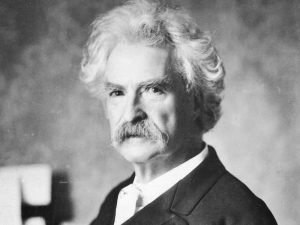An autobiography is a story of someone’s life written by that person. It can be interesting and enjoyable to read, especially if the author is skilled in storytelling. There are certain elements that make a good autobiography.
First, an autobiography should be well-written. The author should be able to capture the reader’s attention and hold it throughout the story. The writing should be clear and concise, and the author should use descriptive language to bring the story to life.
Second, an autobiography should be interesting. It should tell a story that is engaging and captivating. The author should share anecdotes and stories that will make the reader want to keep reading.
Third, an autobiography should be well-organized. The author should structure the story in a way that makes sense and is easy to follow. The chapters should be well-defined, and the story should flow smoothly from one event to the next.
Fourth, an autobiography should be true. The author should be honest and truthful in telling the story of their life. There should be no exaggeration or fabrication of events, and the author should be willing to share both the good and the bad moments of their life.
Finally, an autobiography should be personal. The author should share their own thoughts and feelings, and give the reader a glimpse into their innermost thoughts and emotions. The story should be told from the author’s point of view, and the reader should feel like they are getting to know the author as a person.
These are some of the key elements that make a good autobiography. If an author can incorporate these elements into their story, they are sure to create a captivating and memorable autobiography that will be enjoyed by readers everywhere.
What are 3 features of an autobiography?
An autobiography is a biography of oneself, written by oneself. It is a record of a person’s life, experiences, and thoughts. Typically, an autobiography covers the individual’s life from birth to the present day.
There are three key features of an autobiography:
1. The author’s voice must be the dominant voice.
2. The author must be the primary storyteller.
3. The author must be the central character.
How do you write an effective autobiography?
An autobiography is a written account of a person’s life. It can be an interesting read, providing insights into the author’s thoughts, feelings, and experiences. However, writing an effective autobiography can be challenging. If you want to make your autobiography interesting and engaging, follow these tips:
1. Start with a strong opening sentence or paragraph.
Your opening should capture the reader’s attention and make them want to read on. It should be concise and to the point, setting the tone for the rest of the autobiography.
2. Tell a story.
Your autobiography should be more than a list of facts and dates. It should be a story that engages the reader and paints a picture of your life. Choose anecdotes and stories that are meaningful and interesting.
3. Be honest.
Don’t shy away from revealing your flaws and shortcomings. Be honest and open about your experiences, both good and bad. This will help the reader connect with you and understand you better.
4. Use strong descriptive language.
Your autobiography should be full of rich, descriptive language that brings your experiences to life. Use sensory details to evoke a sense of what it was like to live through those experiences.
5. Be concise.
Your autobiography should be lengthy enough to give the reader a good understanding of your life, but it shouldn’t be too wordy or bogged down with details. Be selective with the information you include and make sure each sentence contributes to the overall narrative.
6. Edit and revise.
Once you’ve finished writing your autobiography, go back and edit it for clarity and concision. Make sure the language is strong and the story flows smoothly. If necessary, revise and reshape your story to make it more interesting and engaging.
What should be avoided in an autobiography?
When writing an autobiography, there are a few things to avoid in order to make the process and the final product as smooth as possible.
1. Don’t fill your autobiography with too many details about your early life. This can be boring for the reader and may not be relevant to the overall story.
2. Don’t focus on lengthy descriptions of people, places, and things. Again, this can be tedious for the reader and may not be necessary for telling your story.
3. Don’t shy away from sharing your personal struggles, but don’t dwell on them either. It’s important to be honest and open in your autobiography, but you don’t want to bog down the reader with negative emotions or experiences.
4. Don’t try to whitewash your life story. If there are parts of your life that you’re not proud of, don’t be afraid to share them. The reader will appreciate your honesty and your willingness to be open and vulnerable.
5. Don’t forget to proofread your autobiography before publishing it. This is especially important for ensuring that your grammar and spelling are correct.
What makes a good autobiography?
What makes a good autobiography? This is a question that has been asked by many people, and there is no one answer to it. An autobiography can be good for many reasons, but some of the most important ones are that it is interesting, informative, and well-written.
An autobiography should be interesting to read. This means that it should be well-paced and engaging, and that the author should avoid boring the reader with too much detail or by going off on tangents. An autobiography should also be informative, providing the reader with a wealth of knowledge about the author’s life and experiences. Finally, an autobiography should be well-written, with clear prose and strong storytelling.
All of these factors together make for a good autobiography. An autobiography that is interesting, informative, and well-written is sure to be enjoyed by readers of all ages.
What makes an effective biography or autobiography?
An effective biography or autobiography is one that captures the essence of the person it is about. It is well-written, accurate, and provides a good sense of who the person is.
The most important thing for a biography or autobiography is to be accurate. It is important to get the facts straight and to portray the person in an accurate light. This means checking sources and being thorough in your research.
It is also important to write in a way that engages the reader. This means using strong storytelling skills and bringing the person to life on the page. The biography or autobiography should be interesting to read and provide a good sense of who the person is.
Ultimately, an effective biography or autobiography is one that is well-written and provides a good sense of the person it is about. It is accurate and engaging, and will leave the reader feeling like they know the person better.
What makes an autobiography unique?
When most people think of the word “autobiography,” they imagine a lengthy, detailed account of someone’s entire life. But what, exactly, makes an autobiography unique? What separates it from other forms of writing, such as memoirs or biographies?
An autobiography is a work of self-representation that captures the author’s own unique perspective on their life. It is not a simple chronological retelling of events, but rather a exploration of the author’s thoughts, feelings, and experiences. As such, it can be a powerful tool for self-discovery and self-expression.
Autobiographies are often highly personal and introspective, offering readers a unique glimpse into the author’s inner world. They can be a way for authors to process their own life experiences, make sense of their past, and come to terms with their own identity.
Autobiographies can also be a form of storytelling, providing readers with a rich and engaging account of someone’s life. They can be full of interesting anecdotes, fascinating characters, and dramatic events.
Ultimately, what makes an autobiography unique is the voice of the author. Each autobiography is a reflection of the author’s own unique perspective and experiences, and offers readers a unique insight into their life.
What are the main features of an autobiography?
An autobiography is a written account of a person’s life, usually spoken or written by the person themselves. Autobiographies are a genre of writing, and can be any length. They can be factual, or they can be fictionalized.
The main features of an autobiography are that it is written by the person themselves, it tells the story of their life, and it is usually factual.
What are the 3 parts of autobiography?
The three parts of autobiography are the introduction, body and conclusion. The introduction is where you introduce yourself and your story. The body is where you tell your story. The conclusion is where you wrap up your story and say what you learned from it.
How do I start an autobiography about myself?
An autobiography is a written account of someone’s life story. It can be an interesting project to undertake, especially if you have an interesting life story to share. If you’re not sure how to get started, here are a few tips.
First, start by brainstorming all of the important moments and episodes from your life. Write down anything and everything that comes to mind, no matter how small. Once you have a good list, start sorting the events into chronological order.
Then, start writing. Don’t worry about making it perfect – just get your thoughts down on paper. As you write, you may find that certain memories or stories come to mind that you hadn’t thought of before. Be sure to add those in.
Finally, be sure to do some editing and revision. This is an important step, as you want your autobiography to be as polished and cohesive as possible.
So, if you’re wondering how to start an autobiography about yourself, these are a few tips to get you started.
What are the 7 steps in writing autobiography?
The process of writing an autobiography can be broken down into seven steps.
1. Decide on the focus of your autobiography.
Before you begin writing, you need to decide on the focus of your autobiography. What specific event or time period in your life do you want to write about?
2. Gather your memories and materials.
Once you have decided on a focus, start gathering your memories and materials. Interview family and friends, look through old photos and journals, and save any other relevant documents or items.
3. Create an outline.
Once you have gathered all of your materials, start creating an outline of what you want to include in your autobiography. This will help you stay on track as you write.
Now it’s time to start writing your autobiography. Remember to focus on the event or time period you chose in step one, and stay true to your outline.
5. Edit and revise your autobiography.
Once you have finished writing your autobiography, it’s time to edit and revise it. Make sure everything is accurate and flows well.
6. Publish your autobiography.
If you want to publish your autobiography, you will need to find a publisher or self-publish.
7. Promote your autobiography.
Once your autobiography is published, you will need to promote it. Use social media, book signings, and other promotional tools to get the word out.
What is not an autobiography?
What is not an autobiography? This is a question that has been asked by many people throughout history. The answer, however, is not always clear.
One thing that is not an autobiography is a biography. A biography is a factual account of a person’s life, while an autobiography is a memoir, or a personal account of a person’s life.
Another thing that is not an autobiography is a novel. A novel is a work of fiction, while an autobiography is a true story.
Finally, an autobiography is not a history book. A history book is a non-fiction account of events, while an autobiography is a personal account of events.
What is the main defect of autobiography?
Autobiography is the story of a person’s own life, written by that person. It can be a great way to share your story with the world, but it has some major defects.
The main defect of autobiography is that it can be biased. The author can only tell the story from their own point of view, and may not be accurate or objective. This can lead to a distorted view of events.
Autobiography can also be self-serving. The author may write it in order to promote themselves or their own agenda. This can make it less credible.
Autobiography can also be repetitive. The author may go over the same events again and again, and this can be tiresome for the reader.
Overall, autobiography has some major defects which must be taken into account when reading it.
What should you avoid writing an autobiography?
When it comes to autobiographies, there are a few things you should avoid. Here are four things you should avoid when writing your autobiography.
1. Don’t focus on yourself to the exclusion of others
Your autobiography should be about your life, but it should also be about the people and events that have helped to shape it. Don’t focus exclusively on yourself – include stories about the people who have been important to you, and the events that have affected you.
2. Don’t whitewash your life story
It’s important to be honest in your autobiography. Don’t shy away from the bad times – include them, along with the good. Don’t try to paint yourself as a perfect person – your readers will see through that.
3. Don’t be afraid to show your emotions
Autobiographies are often emotional books – after all, they’re about your life. Don’t be afraid to show your emotions – anger, sadness, happiness, love. Let your readers see the real you.
4. Don’t try to cram your entire life story into one book
Your autobiography should be a snapshot of your life, not a complete history. Don’t try to include everything – focus on the important events and the people who have been important to you. Let your readers know what you want them to know about you.
What are the rules of autobiography?
An autobiography is a written account of a person’s life, usually written by the person themselves. It can be a very personal account, detailing everything from the person’s childhood to their current day-to-day life. It can also be a more selective account, focussing on certain aspects of the person’s life and leaving out others.
There are no set rules for writing an autobiography, but there are a few things that are usually included. Most autobiographies will start by describing the person’s early life, including their family, their hometown, and any major events or experiences from their childhood. They will then move on to discuss their teenage years and young adulthood, describing any noteworthy experiences or accomplishments during that time. Finally, they will discuss their current life, including their job, their family, and any other major events or accomplishments.
autobiographies are typically written in first person, and the author will often use their own name. However, there is no rule against using a pseudonym if the author wishes to remain anonymous. Autobiographies can be any length, but they typically range from 50 to 500 pages.
One thing to keep in mind when writing an autobiography is that it should be a truthful account of the author’s life. The author should not embellish or exaggerate their experiences, as this can make the autobiography less believable. It is also important to be selective about which experiences to include, as there is no need to include every minor detail of the author’s life.
Autobiographies can be a great way for people to share their life story with others, and they can be an interesting read for anyone who is interested in learning more about a particular person.



